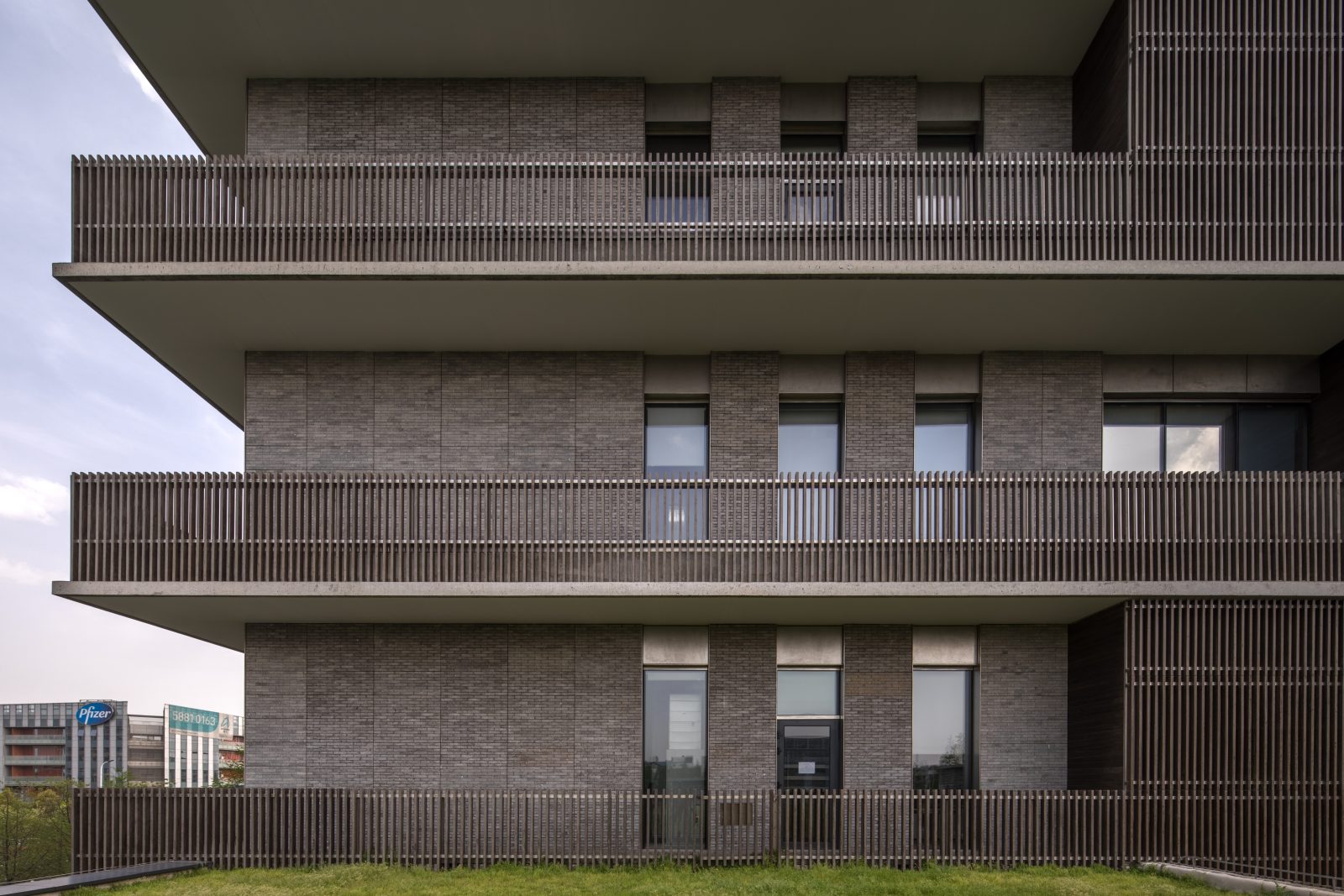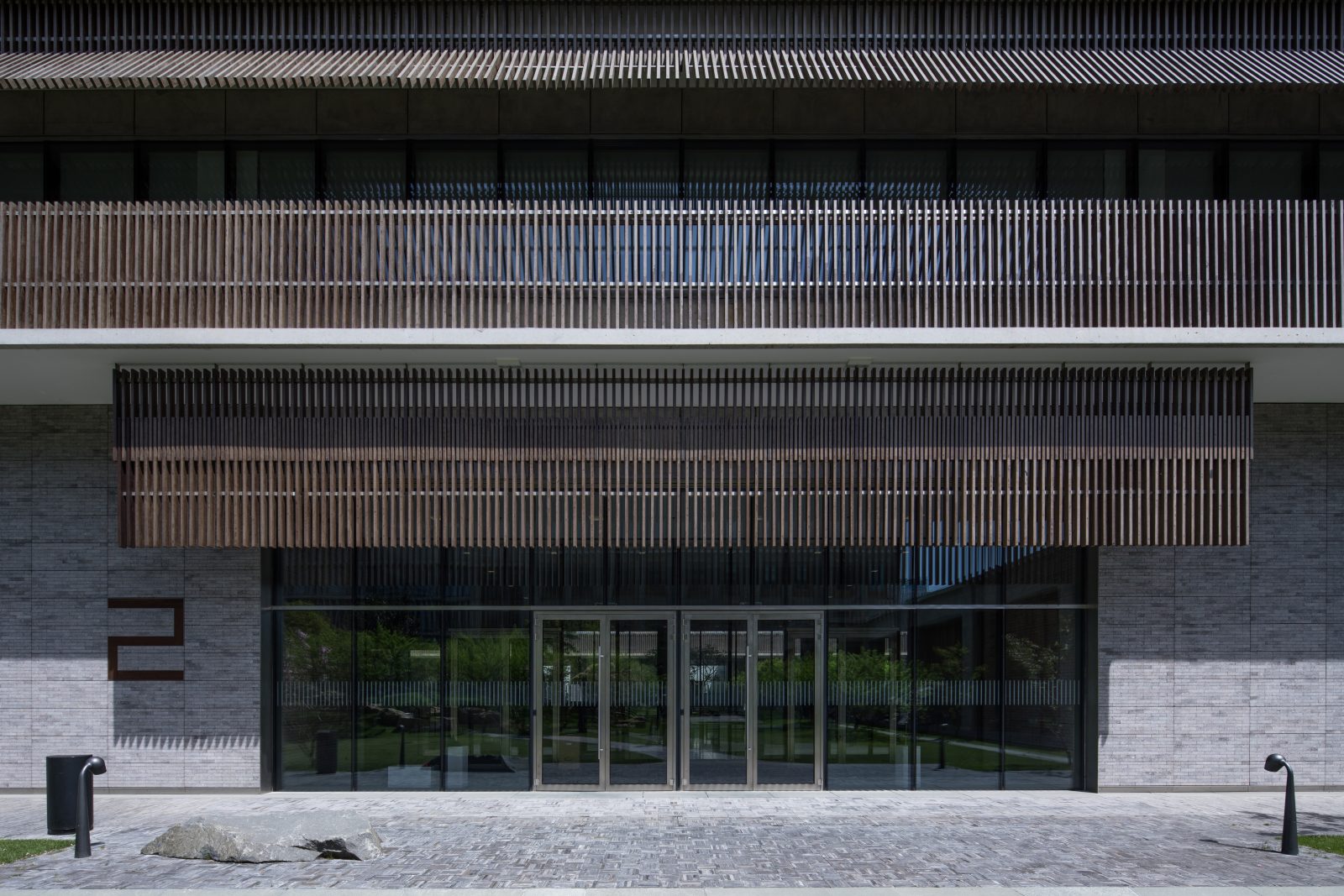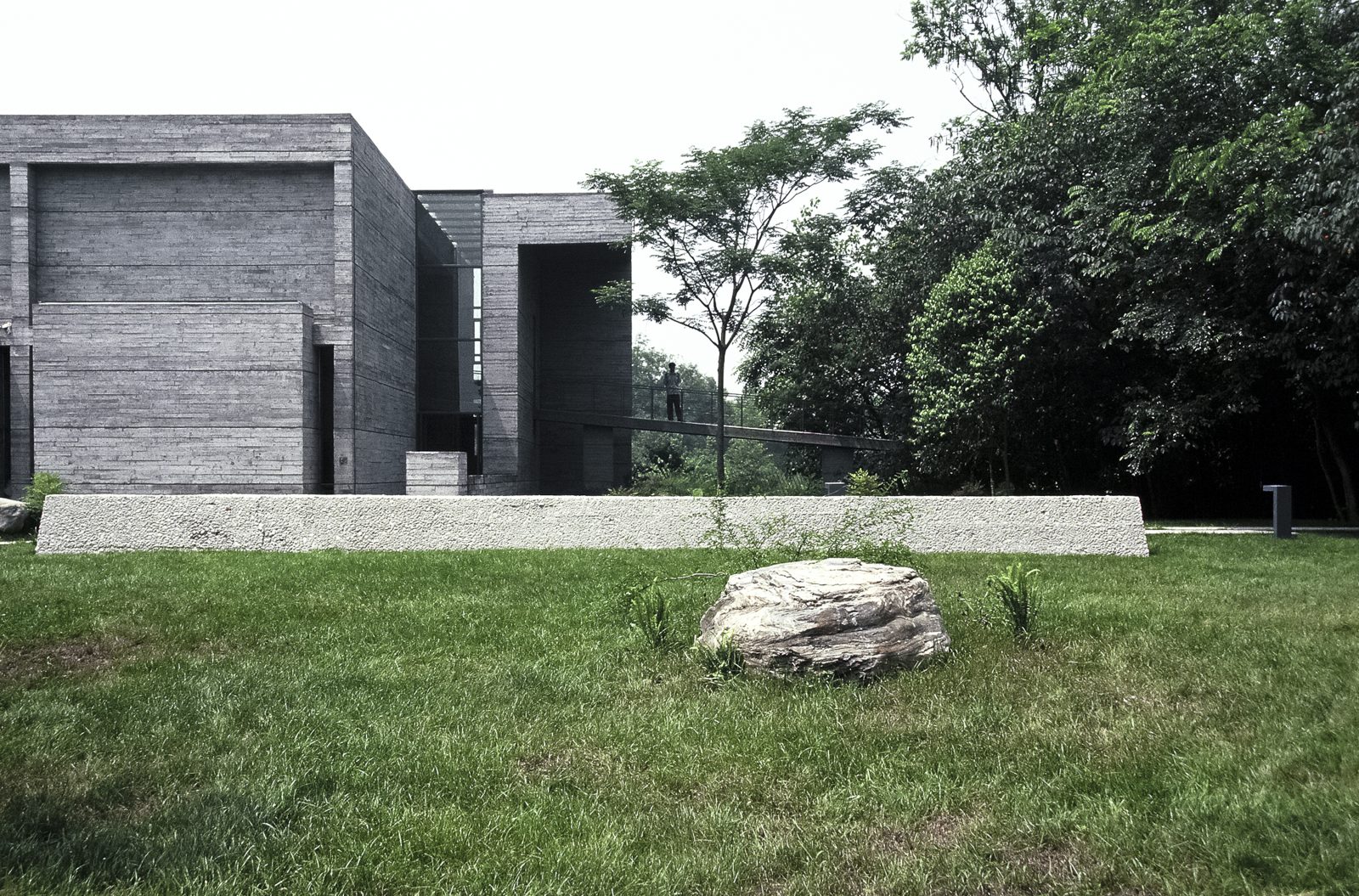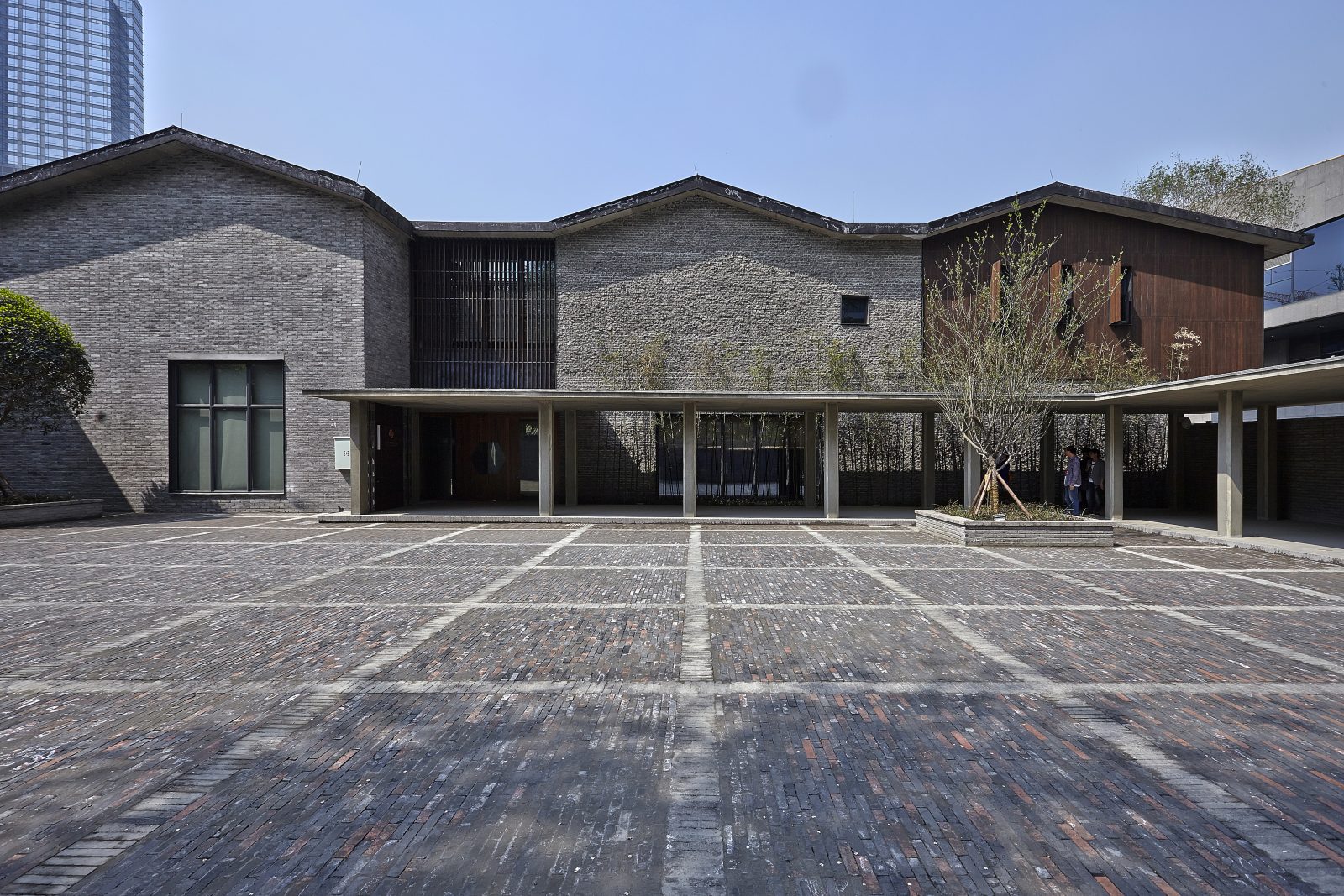Chengdu-based Liu Jiakun, 68, is the 54th winner of the Pritzker Architecture Prize – regarded as the world’s highest honour for architects – and the third to come from China.
His buildings were praised for providing ‘convincing answers that also celebrate the everyday lives of people as well as their communal and spiritual identities’.
The jury, headed by 2016 Pritzker Prize Laureate Alejandro Aravena, said Jiakun ‘imagined and constructed new worlds, free from any aesthetic or stylistic constraint’.
Jiakun founded his practice Jiakun Architecture in 1999 and lives and works in Chengdu – the city in which he was born.
Over four decades, he has designed more than 30 projects ranging from academic and cultural institutions to civic spaces, commercial buildings and urban planning throughout China.
Significant works include the Museum of Clocks, Jianchuan Museum Cluster in Chengdu (2007), the design department for a new campus of the Sichuan Fine Arts Institute in Chongqing, (2006), and the Songyang Culture Neighborhood in Lishui (2020).
His work has included upcycling rubble from the ruins of the 2008 Wenchuan earthquake. He strengthened the found material with local wheat fibre and cement to produce fortified bricks ‘with greater physical and economic efficiency than the original’.

Source:Arch-Exist
Novartis (Shanghai) block C6 by Jiakun Architects
These so-called ‘rebirth bricks’ can be found extensively throughout the Novartis building in Shanghai (2014), Shuijingfang Museum in Chengdu (2013) and the five-storey West Village also in Chengdu (2015), which is his largest work.
In 2018, he was commissioned to build the first temporary Serpentine Gallery pavilion outside the UK at the opening of the WF Central development in Beijing’s Dongcheng district.
The jury described his work as creating ‘public areas in populated cities where the luxury of space is largely absent, forging a positive relationship between density and open space’.
Aravena said: ‘Cities tend to segregate functions, but Liu Jiakun takes the opposite approach and sustains a delicate balance to integrate all dimensions of the urban life.
'In a world that tends to create endless dull peripheries, he has found a way to build places that are a building, infrastructure, landscape and public space at the same time. His work may offer impactful clues on how to confront the challenges of urbanisation, in an era of rapidly growing cities.’
This year’s jury also included previous laureates Lacaton & Vassal co-founder Anne Lacaton – the recent winner of the 2025 Jane Drew Prize for Architecture – and Kazuyo Sejima of SANAA.
Last year’s Pritzker Prize went to 79-year-old Riken Yamamoto from Yokohama, Japan. He was recognised for his architecture which ‘considers the user experience first’, spanning a career of five decades with projects ranging from public and private housing to education, civic spaces and city planning.
The 2023 prize went to David Chipperfield, who became the fifth British winner, more than 15 years after Richard Rogers collected the prize in 2007.
Previous Pritzker laureates include the late Indian architect Balkrishna Vithaldas (BV) Doshi, Berlin-based Francis Kéré (in 2022) and the late Zaha Hadid in 2004.

Source:Qian Shen Photography
Liu Jiakun's West Village (2015) Chengdu, People's Republic of China
Pritzker Prize winners
2025 Liu Jiakun (68), China
2024 Riken Yamamoto (78), Japan
2023 David Chipperfield (69), UK
2022 Diébédo Francis Kéré (56), Burkina Faso/Germany
2021 Anne Lacaton (65) and Jean-Philippe Vassal (67), France
2020 Yvonne Farrell (69) and Shelley McNamara (68), Ireland
2019 Arata Isozaki (87), Japan
2018 Balkrishna Vithaldas Doshi (90), India
2017 Rafael Aranda (55) Carme Pigem (54) and Ramon Vilalta (56) of RCR Arquitectes, Spain
2016 Alejandro Aravena (48), Chile
2015 Frei Otto (89), Germany
2014 Shigeru Ban (56), Japan
2013 Toyo Ito (71), Japan
2012 Wang Shu (48), China
2011 Eduardo Souto de Moura (58), Portugal
2010 Kazuyo Sejima (54) and Ryue Nishizawa (44), Japan
2009 Peter Zumthor (65), Switzerland
2008 Jean Nouvel (62), France
2007 Richard Rogers (73), UK
2006 Paulo Mendes da Rocha (77), Brazil
2005 Thom Mayne (61), USA
2004 Zaha Hadid (53), UK
2003 Jorn Utzon (84), Denmark
2002 Glenn Murcutt (66), Australia
2001 Jacques Herzog and Pierre de Meuron (51), Switzerland
2000 Rem Koolhaas (56), Netherlands
1999 Norman Foster (63), UK
1998 Renzo Piano (60), Italy
1997 Sverre Fehn (72), Norway
1996 Rafael Moneo (58), Spain
1995 Tadao Ando (53), Japan
1994 Christian de Portzamparc (50), France
1993 Fumihiko Maki (65), Japan
1992 Alvaro Siza (57), Portugal
1991 Robert Venturi (65), USA
1990 Aldo Rossi, (59), Italy
1989 Frank Gehry (60), USA
=1988 Oscar Niemeyer (81), Brazil
=1988 Gordon Bunshaft (79), USA
1987 Kenzo Tange (73), Japan
1986 Gottfried Bohm (66), Germany
1985 Hans Hollein (51), Austria
1984 Richard Meier (49), USA
1983 IM Pei (66), China
1982 Kevin Roche (60), USA
1981 James Stirling (55), UK
1980 Luis Barragan (78), Mexico
1979 Philip Johnson (73), USA

Source:Jiakun Architects
Shuijingfang Museum by Jiakun Architects - new workshop
 The Architects’ Journal Architecture News & Buildings
The Architects’ Journal Architecture News & Buildings



























Leave a comment
or a new account to join the discussion.